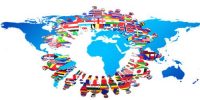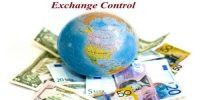Terms of trade, the relationship between the prices at which a country sells its exports and the prices paid for its imports. If the prices of a country’s exports rise relative to the prices of its imports its terms of trade have moved in a favorable direction because in effect it receives more imports for each unit of goods exported. It is a fundamental economic perception involving the buying and selling of goods and services, with return paid by a buyer to a seller, or the exchange of goods or services between parties. It is a significant communal activity because the society needs a continuous supply of goods forever increasing and ever-changing but never-ending human wants
In economics, terms of trade (TOT) refer to the relationship between how much money a country pays for its imports and how much it brings in from exports. The terms of trade, which depend on the world supply of and demand for the goods involved, indicate how the gains from international trade will be distributed among trading countries. An example of trade is the tea trade where tea is imported from Srilanka and purchased in the UAE.
Trades are executed with the payment of sovereign currency, the exchange of goods and services, or payment with a virtual exchange. It also means to exchange something such as items or services, to buy or sell items or to buy or sell stocks. So, it simply means buying and selling of goods and services in return for money or money’s worth.
There are 2 main types of terms of trade;
- Internal or home or domestic trade
It is conducted within the political and geographical boundaries of a country.
- External or foreign or international trade
It is the exchange of capital, goods, and services across international borders or territories, which could involve the activities of the government and individual.
There are five other types of trading available to technical traders: micro-trading, day trading, momentum trading, swing trading, and position trading.
- Micro-trading is a trading strategy that attempts to make any profits on small price changes.
- Day trading is all about buying and selling on the same day, without holding positions overnight.
- Momentum trading focus on stocks that are moving significantly in one direction on high volume.
- Swing trading is a style of trading that attempts to capture gains in a stock within one to seven days.
- The position trader endeavors to anticipate whether the current trend will continue for a much longer term than a momentum or swing trade.
Successful trade provides for developing nations:
- A source of foreign currency to help a nation’s balance of payments,
- A significant way of financing imports of necessary imports of capital equipment and technologies,
- Increased employment in export industries and related industries which can lead to rising per capita incomes,
- It can help to enlarge marketable opportunities and investment,
- Enables a country to obtain a variety of goods and services,
- Helps a country to acquire what it cannot produce.
Reasons for nations engage in international trade –
- Countries engage in international trade in order to:
- Acquire resources they don’t have,
- Sell resources that they have an abundance of,
- Improve a relationship with another country.















